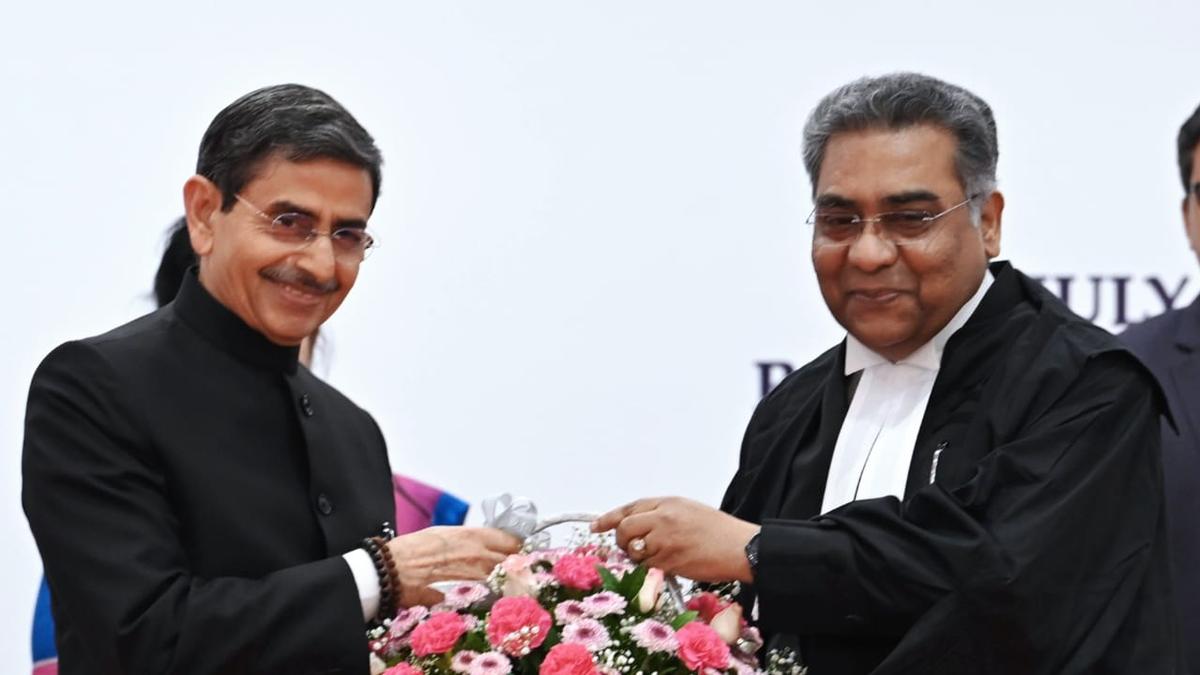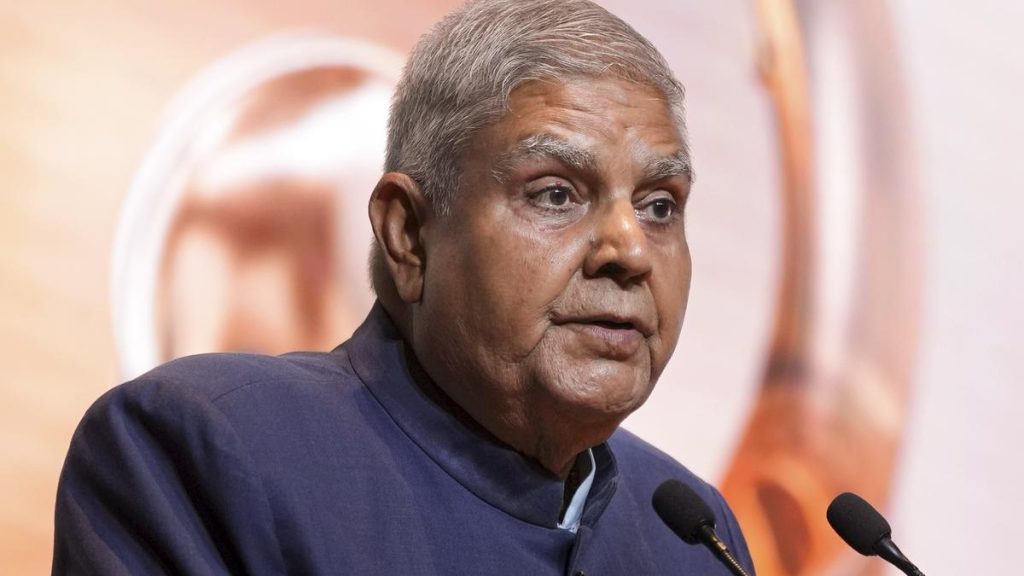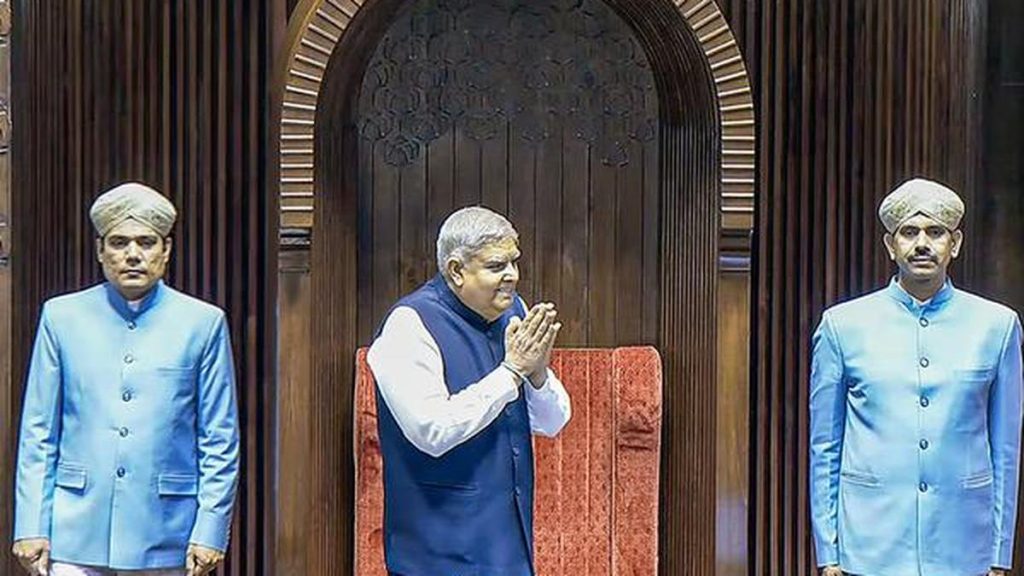Now Reading: Justice M.M. Shrivastava Takes Oath as 54th Chief Justice of Madras High Court
-
01
Justice M.M. Shrivastava Takes Oath as 54th Chief Justice of Madras High Court
Justice M.M. Shrivastava Takes Oath as 54th Chief Justice of Madras High Court

Swift Summary
- Justice Manindra Mohan Shrivastava was sworn in as the 54th Chief Justice of the Madras High Court on July 21, 2025, at a ceremony held at Raj Bhavan, Chennai.
- Tamil Nadu Governor R.N. Ravi administered the oath of office after Chief Secretary N. Muruganandam read out the presidential warrant of appointment.
- Tamil Nadu Chief Minister M.K. Stalin was unable to attend due to ill health; deputy CM Udhayanidhi Stalin, other ministers, adn opposition members congratulated him.
- former AIADMK Ministers D. Jayakumar and C.Ve. Shanmugam represented Opposition Leader Edappadi K. Palaniswami at the event.
- Attendees included former Chief Justice of India P. Sathasivam, judges from Madras High Court, bar leaders, police officers, bureaucrats, and others.
Career Highlights:
- Professional journey: Elevated as a judge of Chhattisgarh High Court in December 2009; transferred to Rajasthan High Court in October 2021; served as Acting Chief Justice (Aug 2022) and later as RajasthanS Chief Justice (Feb 2024) before his move to Madras HC.
- Education: Completed law studies with distinction from K.R Law College in Bilaspur after obtaining a science degree.
- Notable Roles: Served on legal panels for institutions including MP & CG High Courts and Income Tax Dept.; recognized expertise in constitutional law and local governance legislation.
Images:
!Justice manindra Mohan Shrivastava
Indian Opinion Analysis
Justice Shrivastava’s appointment underscores India’s robust mechanisms for judicial leadership transitions across states while promoting regional diversity within its judiciary system-he moves from rajasthan to head one of India’s oldest high courts in Tamil Nadu.
His extensive experience handling cases related to constitutional law combined with his earlier role as standing counsel for various public agencies may bode well for ensuring sound adjudication amid increasingly complex litigations affecting governance frameworks or public interest issues.
Additionally, such appointments demonstrate continuity despite state bifurcations or regional challenges-highlighting how well-established processes ensure balance while maintaining focus on meritocracy within judicial roles without disruption across geographical borders.
For further reading: Link























